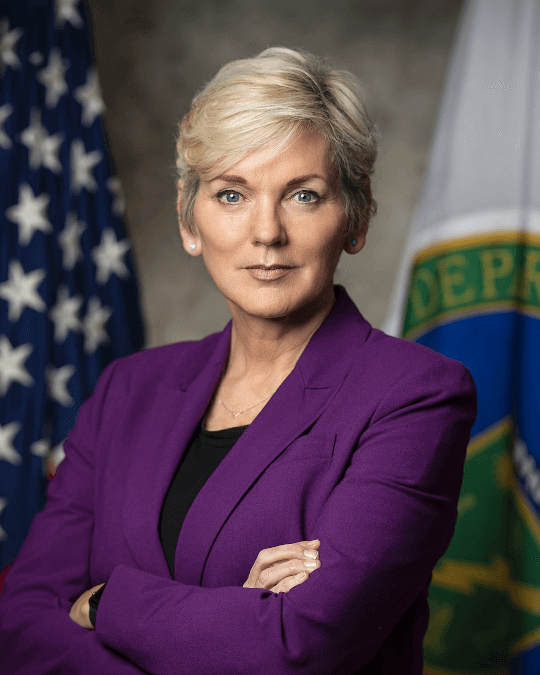The U.S. Department of Energy (DOE) is releasing $18.4 million through the Technology Commercialization Fund (TCF) for seven national laboratory projects with the goal of getting more clean energy technologies to the marketplace. The selected national laboratories will address barriers, gaps and root causes of commercialization challenges for emerging clean energy technologies.
“Accelerating how quickly we get novel technologies to the marketplace will allow us to deploy the clean energy sources needed to combat climate change, lower energy costs and keep us on course to reaching President Biden’s decarbonization goals,” says U.S. Secretary of Energy Jennifer M. Granholm. “DOE’s national laboratories are stepping up to address the urgent need to develop solutions for expedited clean energy technology commercialization – from the time a product is researched, developed and patented to its widespread use.”
New clean energy technologies are critical to meeting the nation’s climate goals, but they face unique barriers to commercialization. Selected lab projects will use a holistic approach to identifying and addressing common barriers that clean energy technology companies face when working to successfully commercialize a product.
TCF, established by Congress through the Energy Policy Act of 2005 and reauthorized by the Energy Act of 2020, provides new flexibilities to promote promising energy technologies. On February 15, 2022, nine DOE program offices subsequently issued the Core Laboratory Infrastructure for Commercialization, a call for national laboratories to develop infrastructure for clean energy technology commercialization.
Lawrence Berkeley National Laboratory will develop promising lab technologies and cultivate a pool of diverse talents and connections between industry and national labs in collaboration with four other labs and funds cost-shared by partners in California, Massachusetts and New York.
National Renewable Energy Laboratory will stand up a prize to provide flexible funding and targeted commercialization assistance to teams at different levels of technical and commercial readiness levels in collaboration with five other labs and funds cost-shared by partners in California.
Pacific Northwest National Laboratory will develop a Visual Intellectual Property Search (VIPS) for both patents and software, made available on the DOE’s Lab Partnering Service webpage, in collaboration with eight other labs and funds cost-shared by partners in California. Pacific Northwest National Laboratory will standardize technology transfer workflows to accelerate the transition of lab-developed technologies to the market in collaboration with five other labs and funds cost-shared by partners in Arizona and California.
Sandia National Laboratories will create a strong regional clean energy commercialization ecosystem in New Mexico for manufacturing in collaboration with six other labs and funds cost-shared by partners in Arizona, California, Minnesota and New Mexico.
Sandia National Laboratories will also engage the diverse startup community at a new, larger scale in order to increase the number of startups around DOE lab technologies in collaboration with 13 other labs and funds cost-shared by partners in Alaska, California, District of Columbia, New Mexico and Virginia.
Sandia National Laboratories will also establish a collaborative approach for moving the semiconductor sector and next generation microelectronics from the lab to the market in collaboration with four other labs and funds cost-shared by partners in Arizona, California, Iowa, Kansas, New Mexico, New York and North Carolina.
“I authored the legislation that established this revamped version of the Technology Commercialization Fund at the Department of Energy,” comments U.S. Senator Martin Heinrich (NM). “I am thrilled that these awards will empower our national labs – including Sandia in New Mexico – to build strong partnerships with local private sector startup companies and grow commercialization and manufacturing ecosystems around promising clean energy technologies developed by Department of Energy researchers.”
“New Mexico’s National Laboratories play a central role in strengthening our nation’s scientific leadership and our economy,” states U.S. Senator Ben Ray Luján (NM). “In Congress, I’m proud to have championed and led bipartisan initiatives in the House and Senate competition packages to support the lab’s research and development efforts in the industries of the future; to modernize our lab’s infrastructure; and to accelerate the commercialization of innovative technologies. This announcement of over $18 million in investments in our labs from the DOE’s Technology Commercialization Fund represents a key investment in the United States’ STEM workforce, its long-term economic competitiveness, and a better quality of life for New Mexicans and all Americans.”
DOE’s Office of Technology Transitions (OTT) coordinates the TCF and plays a role in strengthening DOE’s commercialization partnerships. OTT coordinated with the following DOE program offices to make funding available for 2022: the Office of Nuclear Energy; the Office of Electricity; and the Office of Energy Efficiency and Renewable Energy’s Building Technologies Office, Geothermal Technologies Office, Hydrogen and Fuel Cell Technologies Office, Solar Energy Technologies Office, Water Power Technologies Office, and Wind Energy Technologies Office.




